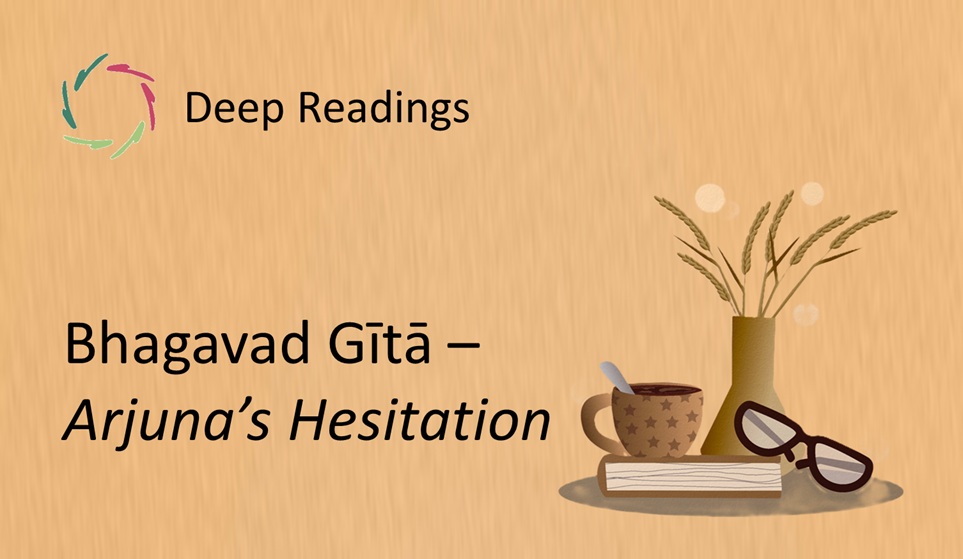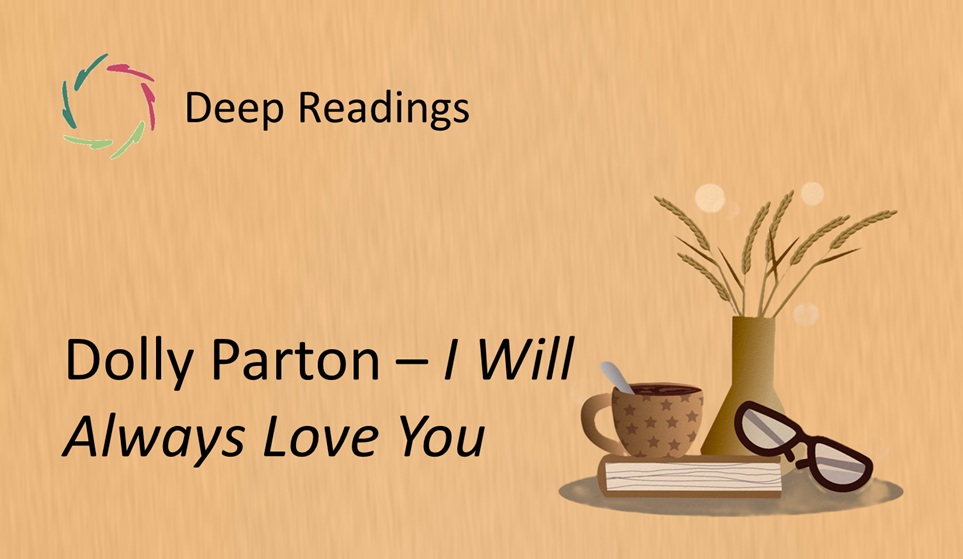Deep Reading: Paul Verlaine – Il pleure dans mon cœur

The Fragment
Original (French):
Il pleure dans mon cœur
Comme il pleut sur la ville;
Quelle est cette langueur
Qui pénètre mon cœur?
Ô bruit doux de la pluie
Par terre et sur les toits!
Pour un cœur qui s’ennuie,
Ô le chant de la pluie!
Il pleure sans raison
Dans ce cœur qui s’écœure.
Quoi! nulle trahison?…
Ce deuil est sans raison.
C’est bien la pire peine
De ne savoir pourquoi
Sans amour et sans haine
Mon cœur a tant de peine!
English rendering (by Lisa):
It weeps within my heart
as rain falls on the town;
what is this slow languor
that pierces my heart?
O sweet sound of the rain
on earth and on the roofs!
For a heart that grows weary,
O the song of the rain!
It weeps without reason
in this heart that grows sick.
What! no betrayal?…
This grief is without reason.
It is indeed the worst pain
not to know why,
without love, without hate,
my heart is so full of sorrow.
(Public domain)
Contextual Glimpse
Paul Verlaine (1844–1896), one of the leading voices of French Symbolism, wrote poetry marked by musicality, melancholy, and elusive meaning. Il pleure dans mon cœur was published in Romances sans paroles (1874), a collection written during turbulent years in Verlaine’s life — imprisonment, separation, and turmoil. Yet the poem is not a confession of any one event. Instead, it distills a mood: sadness without cause, grief without reason.
The image of rain becomes a perfect symbol of this diffuse melancholy. Just as rain falls on the city without pause, so tears fall inside without clear reason. Verlaine’s poem is not about dramatic loss but about the quiet, unexplainable sorrow that seeps into the heart. It is one of the purest expressions of “mal du siècle” — the modern malaise of meaning, still recognizable today.
Resonance
The fragment resonates through its simplicity. The rain outside becomes indistinguishable from the tears within. The sound of rain on roofs is sweet, but for a weary heart it becomes the song of sadness. Verlaine captures the paradox of sorrow without reason: grief that does not arise from betrayal, love, or hate, but from a more mysterious source.
This speaks to the human experience of moods that descend like weather. Sometimes we do not know why we feel sad, yet the feeling is real, undeniable. The poem gives dignity to such sadness, affirming that it, too, belongs to human life. It transforms vague melancholy into music.
Why this may also be about you
This poem may also touch your own life. Perhaps you, too, have known times when sadness arose without cause, when nothing “explained” the heaviness in your chest. Verlaine reminds you that such feelings are part of the human condition — not failure, but truth.
In these times, you may wonder: must sorrow always have a reason? The poem answers softly: no. Sometimes sadness is like rain, falling without why. To accept this is already to find a kind of peace, letting sorrow be part of your landscape without demanding explanation.
Lisa’s inspired, original idea about this fragment
Perhaps Verlaine’s rain is also the unconscious speaking. The heart knows what the mind does not, and its tears fall without clear cause. In this way, unreasoned sadness is not meaningless but a message from deeper layers of being. The rain outside mirrors the rain within, each drop carrying something unspoken.
Seen this way, sorrow without reason is a doorway. It invites us to listen not to explanations but to resonance. What we cannot name may still shape us, like rain soaking the ground, preparing it for growth. The poem suggests that even unexplained pain has its quiet purpose.
Echoes
Il pleure dans mon cœur has echoed for more than a century as one of Verlaine’s signature works. Its refrain of sadness without cause has influenced generations of French poets, and its music inspired composers such as Debussy and Fauré to set Verlaine’s verse to song. The poem’s resonance with “modern melancholy” made it a touchstone for Symbolism and beyond.
In today’s world, where anxiety and depression often arise without clear reason, the poem feels strikingly contemporary. Readers continue to find comfort in its honesty: to know that sorrow without explanation has always existed, and that even in 1874 someone gave it voice. The echo of rain and heart continues still.
Inner Invitation
Close your eyes and imagine sitting in a quiet room while rain falls steadily outside. Listen to its rhythm — soft, insistent, without reason. Let the sound merge with your own breathing, as if the rain were falling inside you.
Now notice any feelings that arise. Do not search for cause or explanation. Let them be like rain: falling, flowing, passing. Give yourself permission to feel without reason, knowing that even unexplainable sorrow is part of life’s song.
Closing Note
Verlaine teaches us that sadness without reason is still truth. Like rain, it falls quietly yet undeniably — and in its music, we find recognition.
Keywords
rain, sorrow, melancholy, mood, Verlaine, Symbolism, music, sadness, acceptance, resonance, heart


